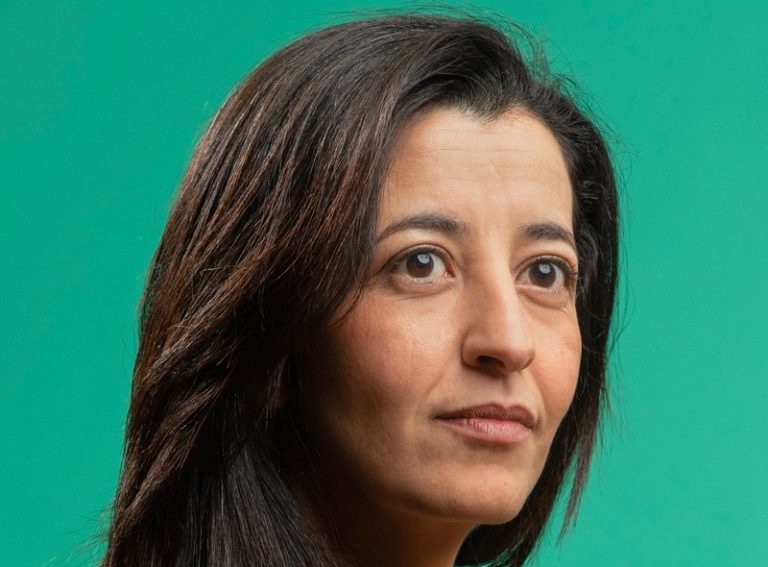Micromobility in the Middle East and North Africa (MENA) is becoming the mode of the moment. Traditionally car-centric, the combination of urban growth and a younger demographic open to innovation is attracting attention from major global brands and strong growth from regional startups.
“MENA is actually a very urban populace, and a very young populace,” says Jaideep Dhanoa, Co-Founder and CEO of Abu-Dhabi based shared micromobility startup Fenix. “And that combo is what you need for micromobility to excel. It’s full of the young and able-bodied who are willing to try something new.”
Dhanoa has almost a decade of mobility experience in emerging markets. Before Fenix, he Co-Founded Circ, the first licensed e-scooter operator in the region, and held leadership roles with Grab and Careem.
To help make sense of the shared micromobility landscape in MENA, Dhanoa has come up with what he calls a “spectrum” to chart a city’s progress.
“Initially, a market is closed,” he says. “The next phase is when a city runs a pilot but in limited areas to prove the concept. If successful, we move into the regulated phase where laws are drafted for riding these vehicles. The last phase is what I call integrated where the city starts linking micromobility with public transit in a seamless manner. This includes payment integration and augmenting the infrastructure to accommodate micromobility.”
Putting Dhanoa’s “spectrum” on the map
Dhanoa says that the UAE is probably the furthest along the line right now in terms of micromobility adoption. Specifically, he thinks the city of Dubai is the most advanced having moved into the integrated phase.
“Dubai has issued regulations with a kind of customer-consumer license process where you need to have a driver’s license or else do an online safety test to ride e-scooters. They have long term permits of up to five years with operators, coupled with an integrated metro system with MetroCard payments, and they’re investing a lot into infrastructure.”
Not far behind is Abu Dhabi and Bahrain in the regulated phase. These cities are in the process of developing better infrastructure to expand their coverage.
“I would say Doha is in the pilot stage where the Ministry of Transport has approved a couple of areas for a trial with a handful of companies. Other markets are still mostly closed for shared micromobility, and North Africa is not really regulated today.”
From a regional startup perspective, Fenix has been instrumental in the growth of micromobility in MENA. Since launching in November 2020, it now operates more than 10,000 vehicles in 13 cities in the UAE, Saudi Arabia, Bahrain, Qatar and Turkey.
Unleashing urban potential
Fenix is on a mission to unleash urban potential through faster, more affordable and better connected journeys.
Since starting as an e-scooter operator, the firm has regularly added business lines, from 10-minute grocery delivery to micromobility subscriptions and ride-hail.
“In those urban centres, we thought let’s move people, and also leverage the scooter’s capabilities to move small packages,” says Dhanoa.
Looking further out, Fenix wants its footprint to cover the Greater Middle Eastern region, from Morocco to Pakistan.
Zooming in on the Gulf region specifically, one of the other regional startups is Qatar-based Loop Mobility.
Looping in Qatar
Founded in 2019, Loop Mobility offers a scooter-sharing service for residents in the capital Doha as part of a Government trial, and runs an exclusive operation in the planned city of Lusail.
Loop’s 1,000+ e-scooters are fast becoming a popular alternative mode of transport as well as a new form of leisure activity.
To beef up its business model, Loop has launched Loop Platform, a one-stop-shop for any operator looking to set up their own fleet of shared e-scooters.
Independent operators can buy branded Loop e-scooters, which they can then manage via a data dashboard. In exchange for these benefits, Loop charges a service fee on every scooter ride.
Right now the firm’s immediate priority is getting e-scooters on the ground for the 2022 FIFA World Cup that is scheduled to run in Qatar from November.
“The FIFA World Cup provides a massive opportunity to showcase the full potential of micromobility,” Loop’s CEO Mohammed Almohannadi told Zag. “Once this finishes we are already in coordination with another GCC country [Gulf Cooperation Council] to launch there. Our mission is to be available ‘anytime at anywhere’ so we definitely plan to expand our reach.”
Two of the global players capitalising on the growth of micromobility in MENA are TIER and Lime.
TIER eyes Middle East expansion
TIER was previously focused on Europe but began looking for counter seasonal revenue to offset low usage in the European winter.
Early engagements began with the UAE by jumping on e-scooter pilot programmes. TIER now operates in nine cities (with e-bikes in five) – Abu Dhabi, Dubai, Ruwais, Jeddah, Riyadh, Doha, Holon, Ramat-Gan and Tel-Aviv.
“We’re mainly targeting the GCC countries,” says Amir Melad, TIER’s General Manager for the Middle East. “But the UAE has been the easiest place to launch. The internet speed, infrastructure readiness and focus of governments on enhancing people’s lifestyles means we can just plug-in micromobility.”
Also drawing TIER to the region is an investor angle. Two of its largest investors Mubadala Capital and Softbank Visionfund 2 are from the Middle East and they like to see the firm establishing operations in their native surroundings.
“The next goal is to be integrated with local transportation companies,” says Melad. “Over the past three years micromobility in MENA has experienced tremendous growth, and this year we plan to double our footprint.”
Lime knocks on the door
Hot on TIER’s heels is US-based operator Lime. With around 4,000 vehicles in MENA, Lime is a formidable presence.
Lime won tenders to join Abu Dhabi’s and Dubai’s pilot programmes early on. Last October, the Dubai pilot was converted into a full contract, while a longer serving contract in Abu Dhabi is expected to start soon.
“We’re very optimistic about being one of the main operators for Abu Dhabi,” says Lime’s Middle East and Africa Regional General Manager, Mohamed Abouhussein. “Within the next six months, there should also be news of us opening in a couple of new cities.”
Abouhussein explains that what really helped the firm was when the UAE announced its intention to reach net zero by 2050 last October, as micromobility now aligns with its long term sustainability goals.
Lime’s largest market in the MENA is Israel where it operates in six cities, including the capital Tel Aviv.
“Micromobility in the Middle East is a developing beast. It has all the potential and is now travelling full-speed in the right direction.”




